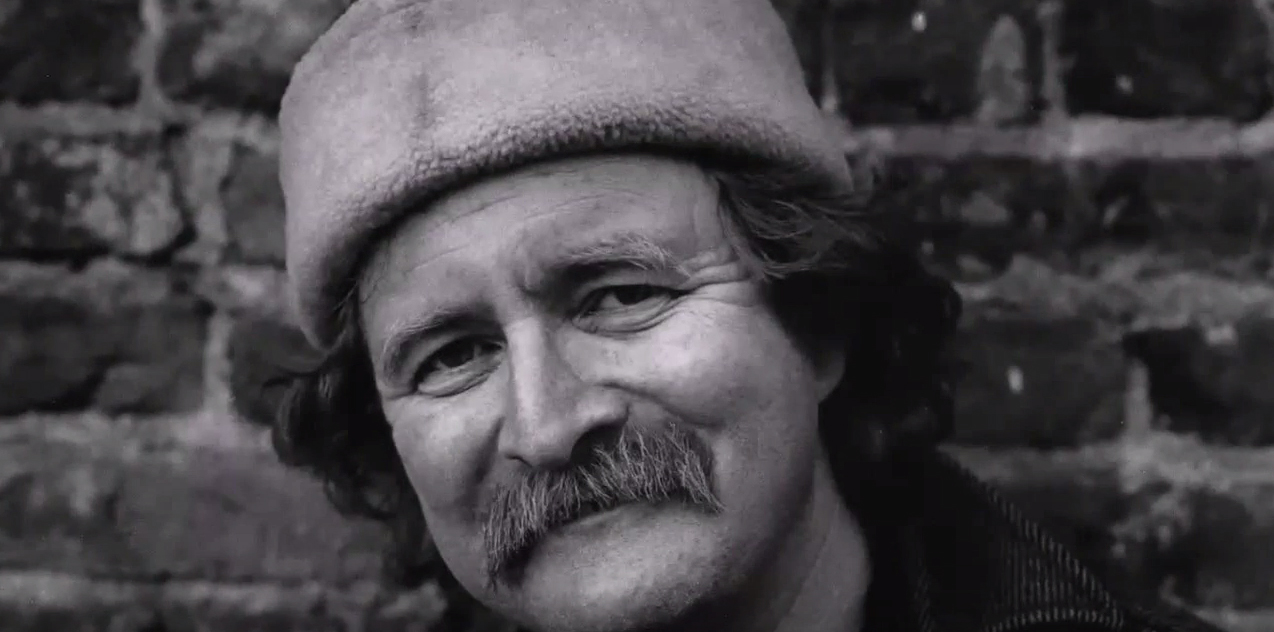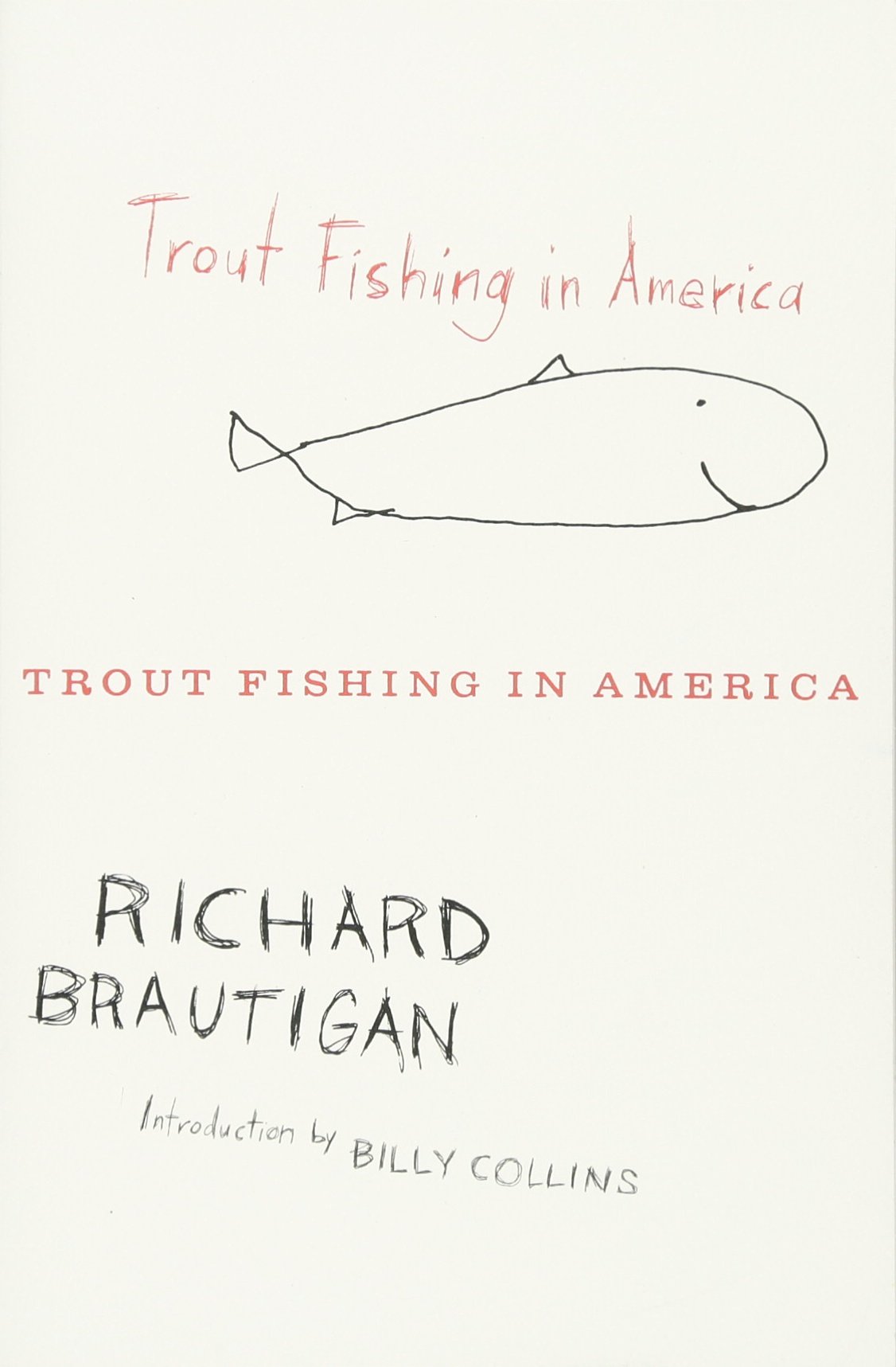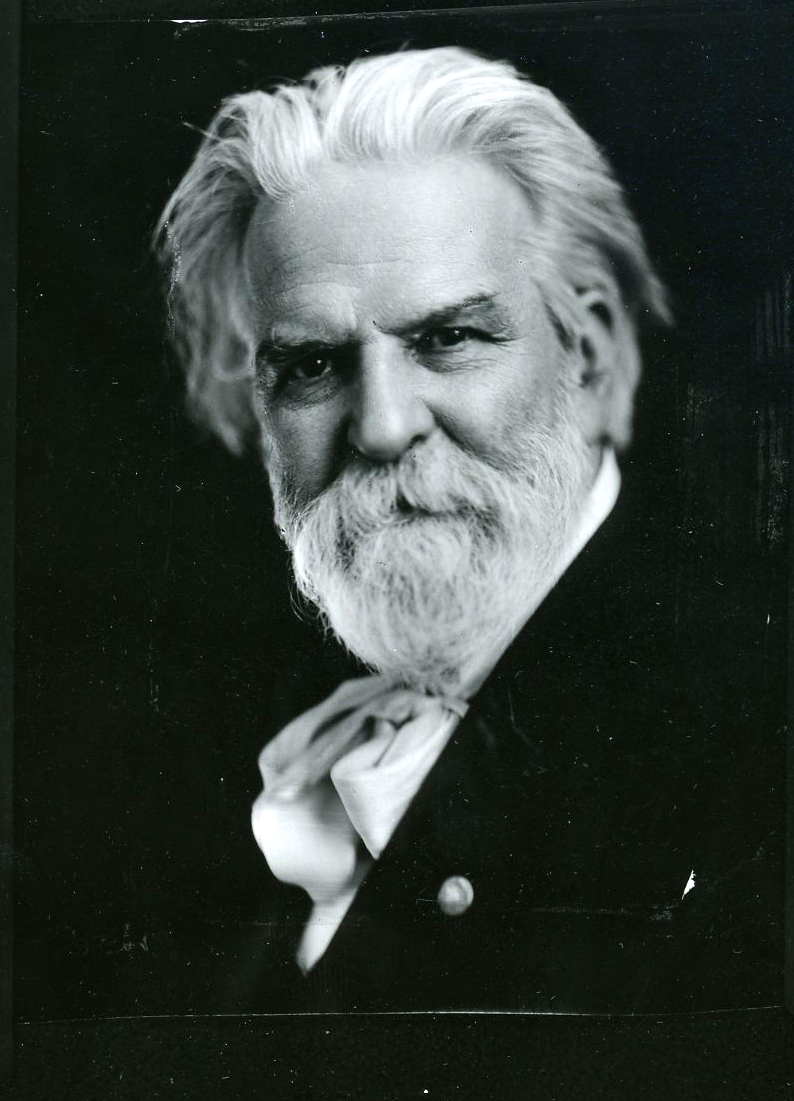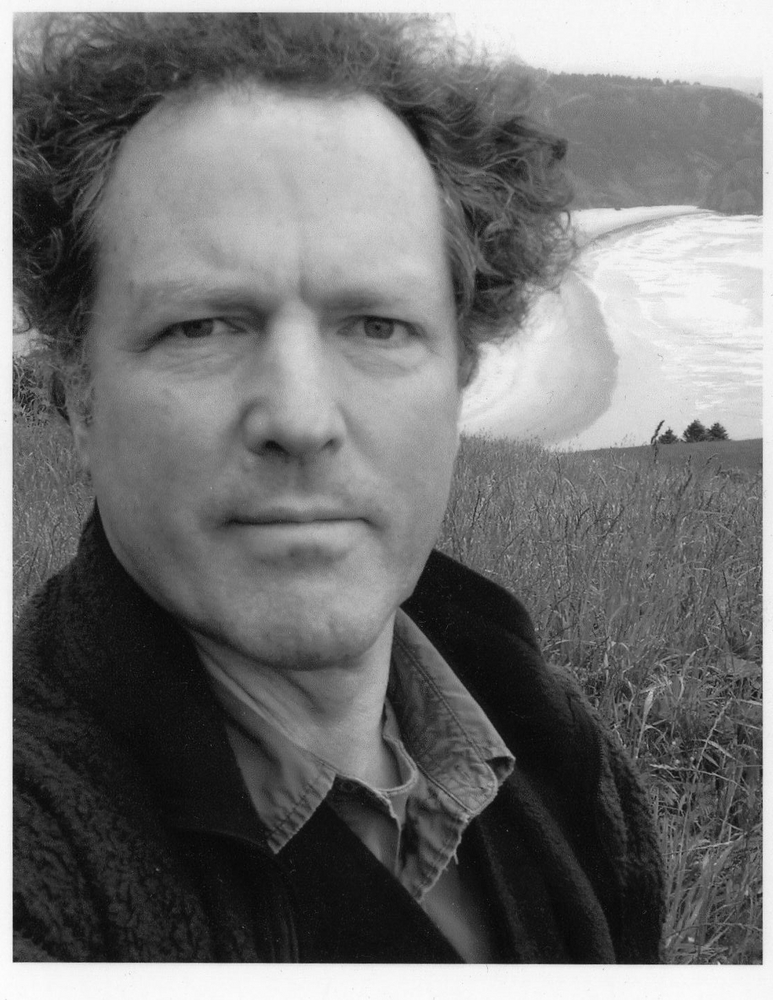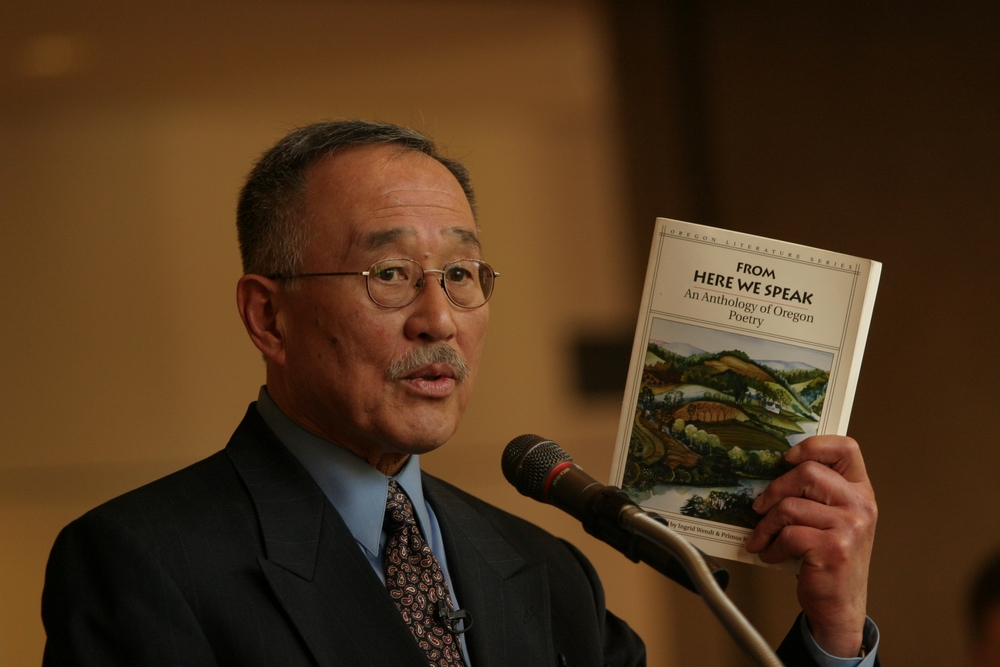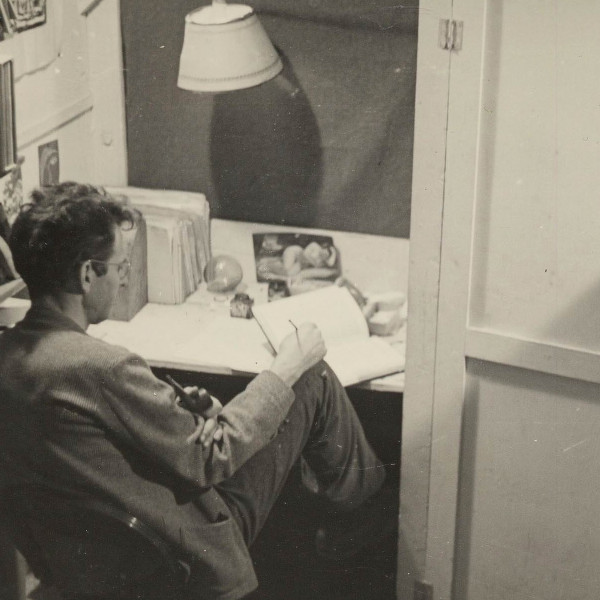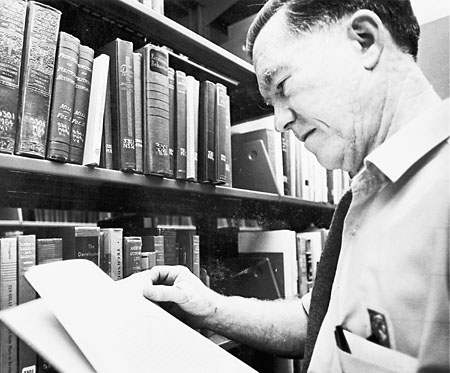Novelist and poet Richard Brautigan was raised largely in Eugene and attended South Eugene High School. He featured Oregon scenes and landscapes in his international best-selling novel, Trout Fishing in America (1967), which sold more than four million copies.
Born in Tacoma, Washington, on January 30, 1935, Brautigan died from suicide in September 1984. His troubled life and struggles with mental illness included a stay in the Oregon State Hospital in Salem in 1956. In the 1960s and 1970s, he lived in San Francisco, and his early work was associated with the counterculture there. He taught for a year at Montana State University in 1982 and then moved on to Bolinas, California, where he lived for the remainder of his life.
One of Brautigan’s gifts to the world of literature was one of the dominant novels of the 1960s, Trout Fishing in America, a novel that caught the era’s zeitgeist of whimsy, rebellion, irony, and the search for personal freedom. His stylistic legacy—the use of techniques and conventions of both poetry and prose—and the clear and simple language of surprise in his poetry came to be hallmarks of 1960s writing. His style and his attack on expected or traditional forms also extended to what he called the essay, where he continued his experimentation with the formal elements of the genre and included sound recordings, performance, and monologue.
Although Brautigan’s fame diminished in subsequent decades, new generations of writers and scholars continued to discover his work. Any discussion of the literature of the 1960s—of authors such as Ken Kesey, Tom Robbins, and Allen Ginsberg—must also consider Brautigan’s work for his quirky vision and his experimentation with language.
Brautigan wrote eleven novels, ten books of poetry, several screenplays, and a short story collection, Revenge of the Lawn (1971). His best-known novels after Trout Fishing are A Confederate General in Big Sur (1964), In Watermelon Sugar (1968), Abortion: An Historical Romance (1966), and The Hawkline Monster: A Gothic Western (1974). His books of poetry include The Galilee Hitchhiker (1958), All Watched Over by Machines of Loving Grace (1967), and The Pill Versus the Springhill Mine Disaster (1968).
An ecological sensitivity is evident in most of Brautigan’s writings, a sensitivity first cultivated in the Northwest and his life in Oregon. Populist themes, a respect for watersheds and forests, a biting irony in his observances of modern life, and investigations of human dignity—all give his writings the tenor of a moralist who at once longs for a better world and attends to the ironies of human folly.
-
![]()
Richard Brautigan, publicity image.
Courtesy Brautigan.net
-
![]()
Trout Fishing in America, by Richard Brautigan.
Courtesy Mariner Books
Related Entries
-
![Edwin Markham (1852-1940)]()
Edwin Markham (1852-1940)
Throughout most of his life, Edwin Markham was known as the Dean of Ame…
-
Kim Stafford (1949 - )
Kim Stafford, Oregon’s ninth Poet Laureate, is a poet, essayist, memoir…
-
Lawson Fusao Inada (1938-)
Poet, writer, and educator, Lawson Fusao Inada is an emeritus professor…
-
![Paulann Petersen (1942-)]()
Paulann Petersen (1942-)
Paulann Petersen, Oregon’s sixth Poet Laureate, is an award-winning poe…
-
Vi Gale (1917 -2007)
Oregon poet and publisher Vi Gale was born Viola Håkansson in rural Nor…
-
![William Everson (1910-1994)]()
William Everson (1910-1994)
William Oliver Everson, a prominent poet in the San Francisco Renaissan…
-
![William Stafford (1914-1993)]()
William Stafford (1914-1993)
William Stafford, one of America’s most widely read poets, was born in …
Map This on the Oregon History WayFinder
The Oregon History Wayfinder is an interactive map that identifies significant places, people, and events in Oregon history.
Further Reading
Barber, John F. Richard Brautigan: An Annotated Bibliography. Jefferson, NC: McFarland & Co. 1990.
Brautigan Bibliography and Archive. www.brautigan.net

